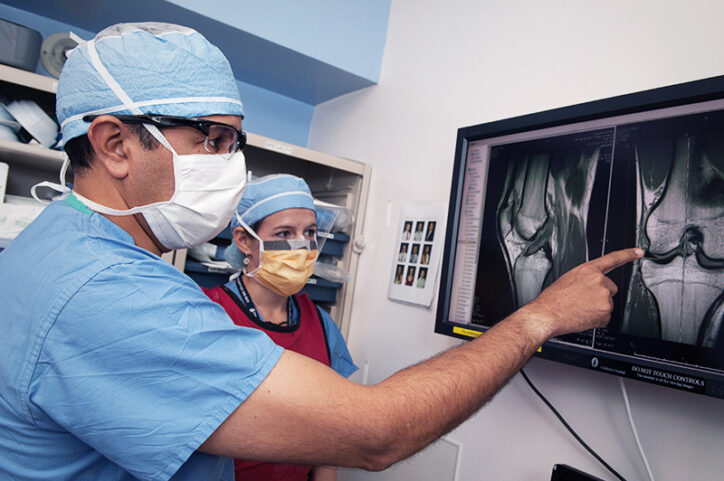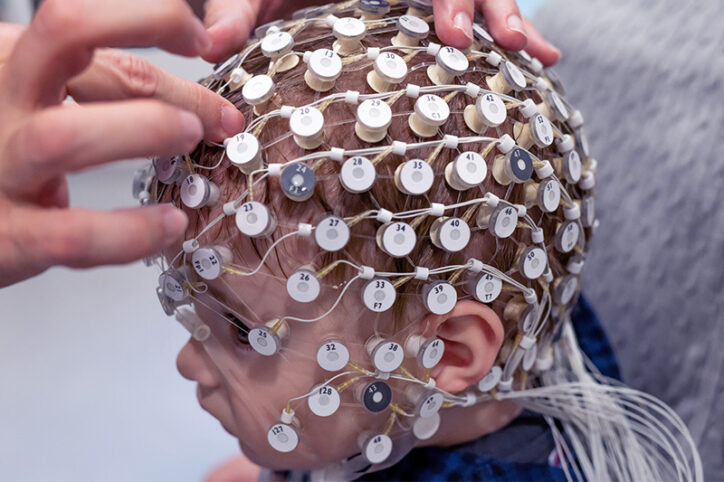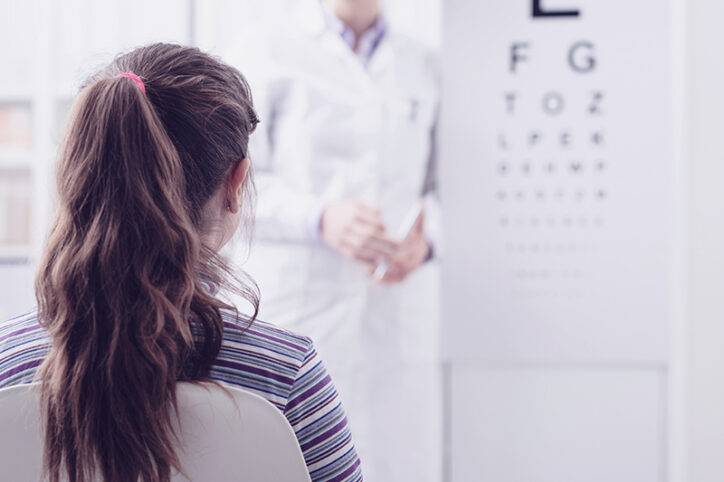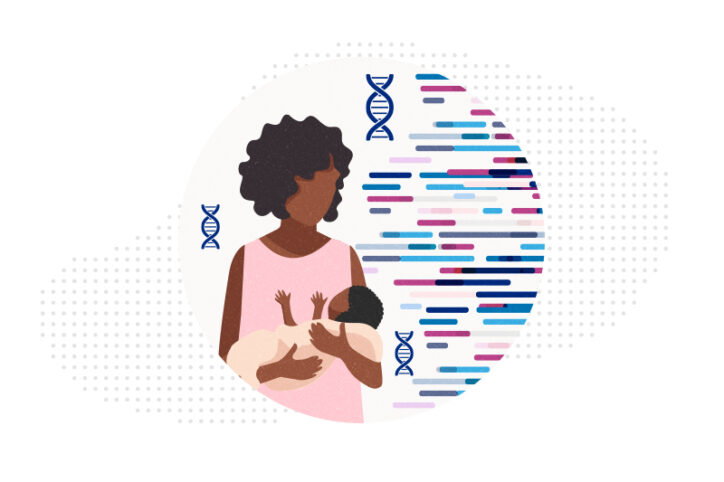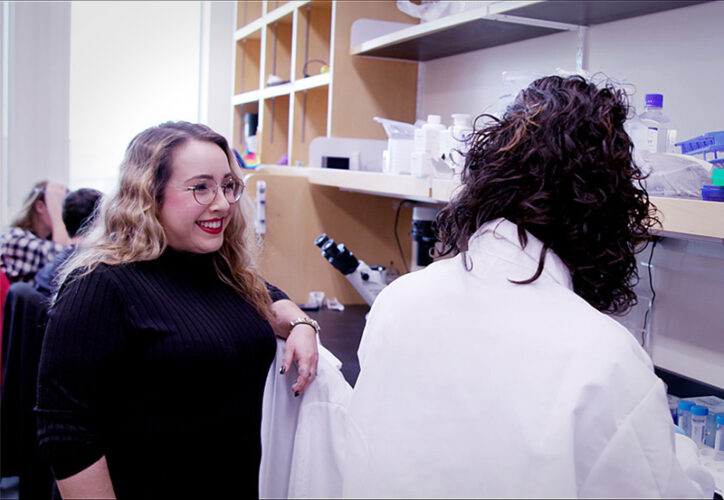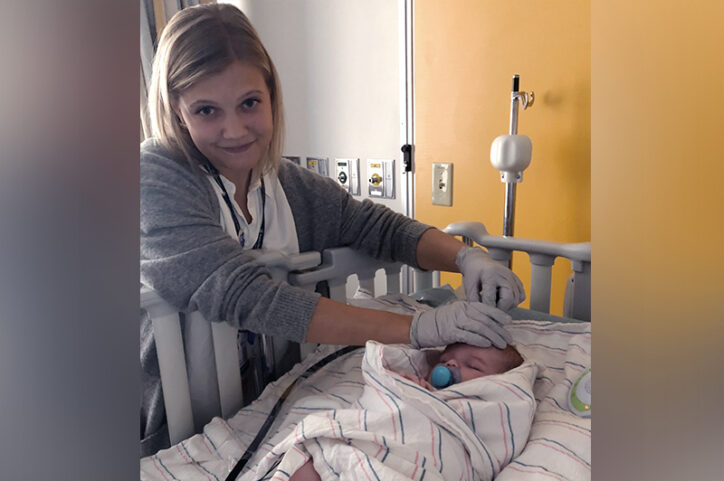Making immunotherapy safe for AML
Acute myeloid leukemia (AML), the second most common leukemia in children, is hard to treat and has a five-year survival rate of just 65 to 70 percent, according to the American Cancer Society. While immunotherapies like monoclonal antibodies or CAR T-cell therapy are effective for certain blood cancers, they have not been possible in AML ... Read More about Making immunotherapy safe for AML
Uncertainty surrounds ACL treatment decisions in young athletes. It shouldn’t.
It’s an injury once seen mainly in adults, yet it’s become increasingly common in younger patients. From 2000 to 2020, the number of anterior cruciate ligament (ACL) tears in children and adolescents increased between three- and five-fold. For young athletes, an ACL tear spells six to nine months of downtime, heightened risk for secondary ACL ... Read More about Uncertainty surrounds ACL treatment decisions in young athletes. It shouldn’t.
EEG markers in early life could help predict and diagnose anxiety
Anxiety disorders are the most common mental health problem among children and adolescents and are a risk factor for adult disorders. Stress is a big factor — at home, at school, and from external factors like COVID-19 and climate change. But some children may be innately more susceptible to anxiety. New research at Boston Children’s ... Read More about EEG markers in early life could help predict and diagnose anxiety
Pioneering trial offers hope for late treatment of ‘lazy eye’
In children with amblyopia or “lazy eye,” one eye is weaker than the other for any of a number of reasons. It may not focus as well, it may be misaligned due to strabismus, or its vision may be obstructed by a cataract or a droopy eyelid. As a result, the brain starts to favor ... Read More about Pioneering trial offers hope for late treatment of ‘lazy eye’
Hurdles in health care: Navigating insurance approvals
If you’ve ever struggled with your patient’s insurance company when it came to getting their prescription filled, you’re not alone. For patients with chronic conditions, including inflammatory bowel disease (IBD), newer drugs like biologics can be very effective — but also very expensive. As a result, many insurance companies have limited access to these medications ... Read More about Hurdles in health care: Navigating insurance approvals
Rapid DNA sequencing yields timely answers for infant epilepsy
Treating children with epilepsy has traditionally been a matter of trial and error, trying different drugs one after the other. In the one-third of patients for whom the drugs do not work and seizures continue, doctors consider brain surgery — if it can be done safely. Early in her career, Ann Poduri, MD, MPH, who ... Read More about Rapid DNA sequencing yields timely answers for infant epilepsy
The clot thickens: Kellie Machlus, PhD
Part of an ongoing series profiling researchers at Boston Children’s Hospital. Platelets are the bandages of our blood, forming clots when we sustain an injury. Yet little is known about how they’re made, and there are no drugs that can immediately and directly trigger their production. Boston Children’s Hospital researcher Kellie Machlus, PhD, (@theclotthickens) couldn’t ... Read More about The clot thickens: Kellie Machlus, PhD
MIS-C’s long-term effects on mental and neurologic health
Children and adolescents who have had multisystem inflammatory syndrome in children (MIS-C) after exposure to COVID-19 are recommended to have follow-up heart function testing. A new study from Boston Children’s Hospital suggests they should also be monitored for long-term neurologic and psychosocial complications. “If parents are noticing changes in their child’s behavior or functioning, it ... Read More about MIS-C’s long-term effects on mental and neurologic health
Bedside tech predicts newborns’ outcomes after therapeutic hypothermia
Hypoxic-ischemic encephalopathy (HIE), brain injury caused by oxygen deprivation around birth, is a common cause of admission to the neonatal intensive care unit. Therapeutic hypothermia is now becoming the standard treatment to minimize brain injury; cooling the newborn’s head or whole body for three days slows cellular metabolism and allows brain cells to avoid and ... Read More about Bedside tech predicts newborns’ outcomes after therapeutic hypothermia
Could the right dietary fat help boost platelet counts?
Aside from transfusions, there currently is no way to boost people’s platelet counts, leaving them at risk for uncontrolled bleeding. Could something as simple as a dietary change raise platelet counts in people with low levels, such as cancer patients receiving chemotherapy? New science out of the lab suggests that the answer might be yes. ... Read More about Could the right dietary fat help boost platelet counts?



